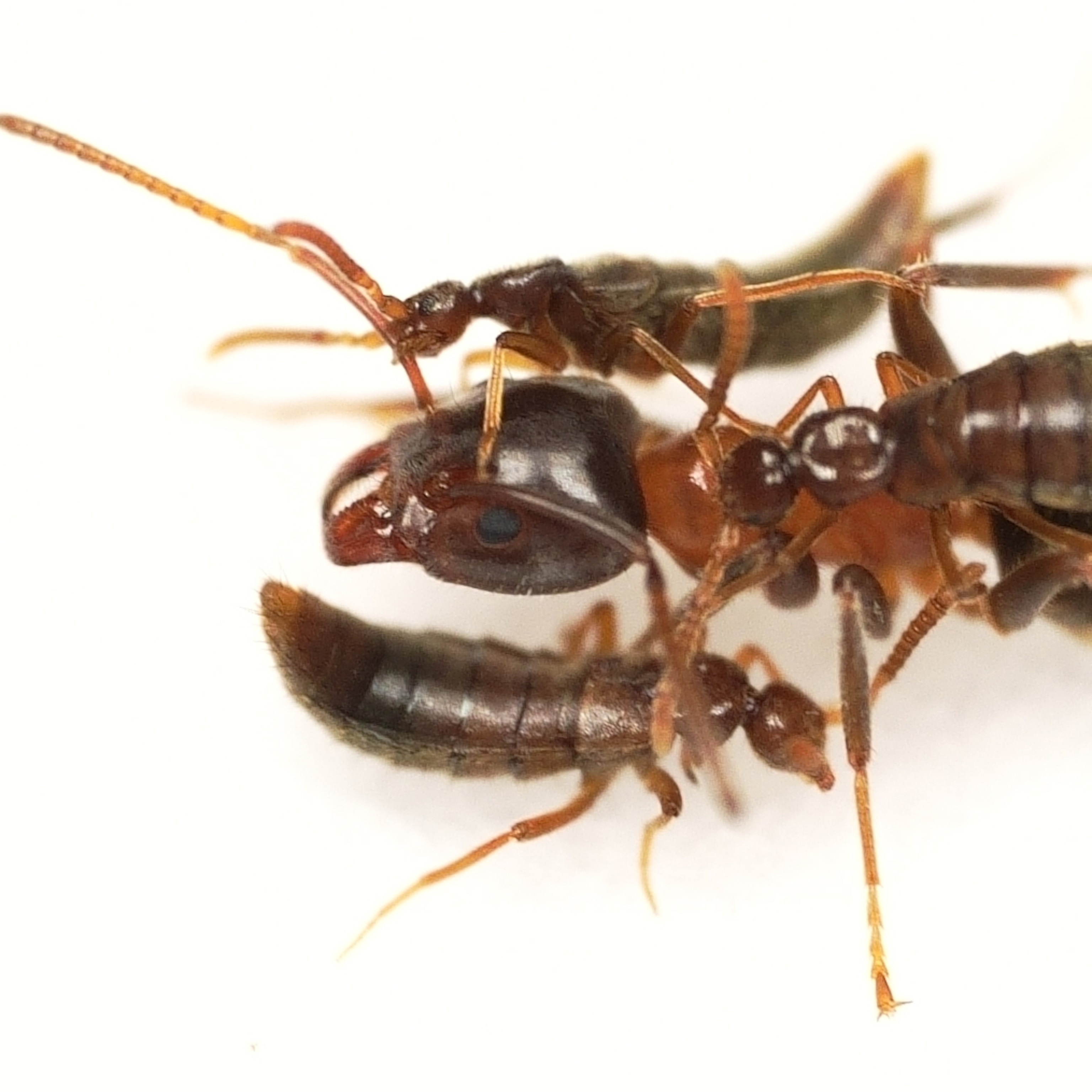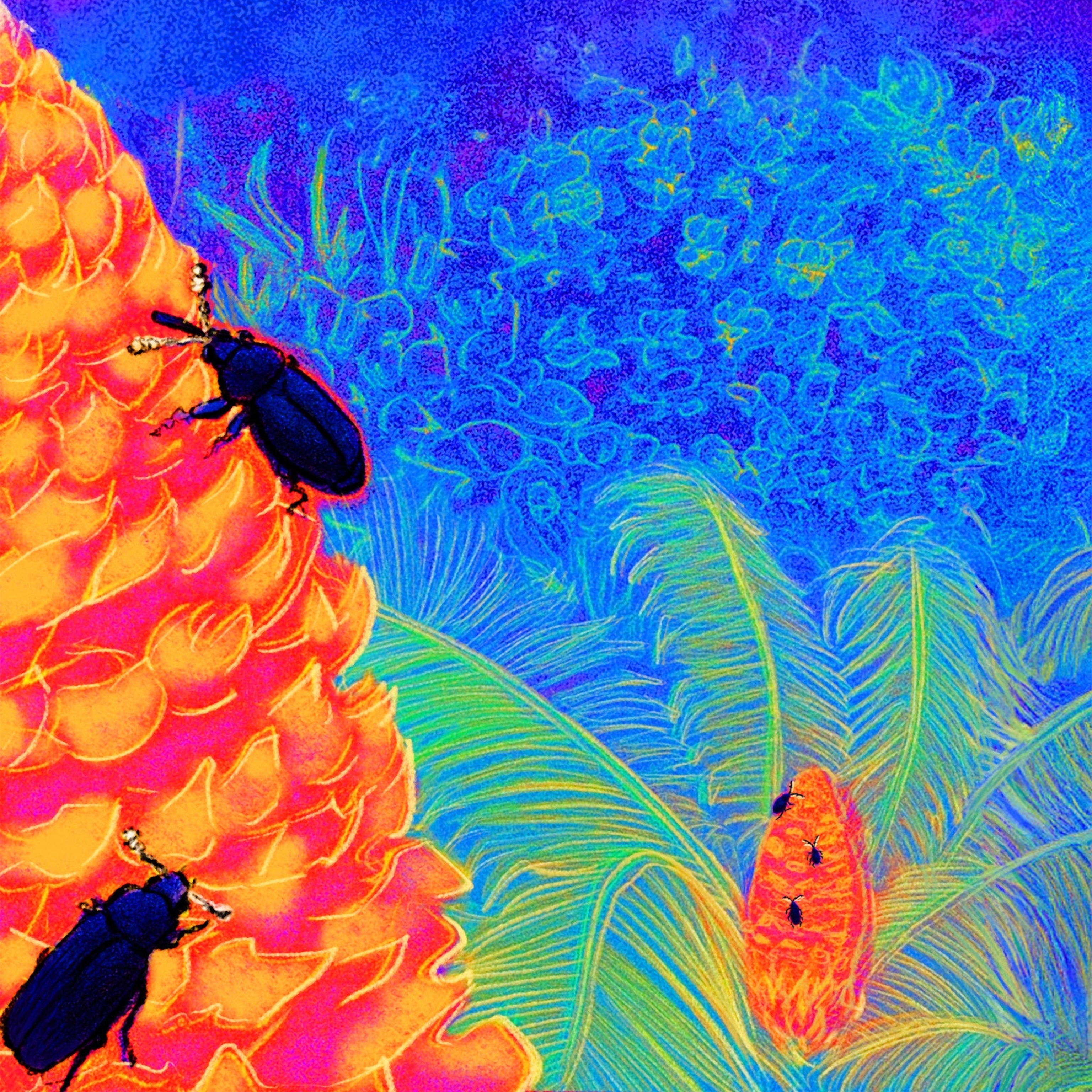
Ig Nobel Prizes Honor Wasabi Alarm, Odd Beetle Sex, More
2011 awards announced this week at Harvard ceremony.
A wasabi alarm, beer bottle-loving beetles, and doomsday math were among the scientific advances honored Thursday with 2011 Ig Nobel Prizes.
The unique annual awards go to real research "that first makes people laugh, and then makes them think." The scientific celebration, now in its 21st year, was hosted by the Annals of Improbable Research and several Harvard University student groups.
As usual, more than a half dozen genuine Nobel laureates were onstage at Harvard's Sanders Theater to hand out the coveted prizes.
(Read about fruit bat fellatio, how cursing functions as a painkiller, whale snot collection, and other winners of the 2010 Ig Nobels.)
Wasabi Wake-Up Call
The famous sushi condiment has become a lifesaver thanks to the work of Makoto Imai, of Japan's Shiga University of Medical Science, and colleagues. The team won the 2011 Ig Nobel chemistry prize for developing a "wasabi alarm" that discharges an airborne spray made from the spicy horseradish. The spray is potent enough to wake a soundly sleeping person in the event of an emergency.
"People with hearing difficulties may fail to wake up with noise or flashing lights, and another mode of communication may be necessary to save their lives," Imai said. "The wasabi alarm is not a smell but a stinging sensation to the upper airways."
Airborne wasabi concentrations of up to 20 parts per million are strong enough to awaken sleepers via stinging noses and watery eyes, Imai reported, but not so strong that the effect hinders peoples' ability to evacuate efficiently. (Related: "Garlic's Punch May Inspire New Pain Drugs.")
The authors gave a special nod to their study subjects, who agreed to be awakened at all hours of the night with varying doses of wasabi spray.
Beer Bottles Attract Amorous Beetles
A pair of scientists won the 2011 Ig Nobel Prize in biology for uncovering a strange tale of beetles, sex, and the brewing industry—though no alcohol was involved. David Rentz and Darryl Gwynne stumbled upon a strange story in the West Australian desert in the mid-1980s: They saw masses of colorful male buprestid beetles trying to mate with empty Swan beer bottles discarded along the highway.
"We could see that just about every [bottle] had a beetle on it, and these beetles have very prominent tally whackers—they were clearly trying to mate," said Rentz, of James Cook University in Queensland.
There was no trace of alcohol left in the old Swan stubbies, so the researchers knew the beetles weren't being drawn by scents. So the pair tested other colors, sizes, and shapes of beer bottle and found none that proved as alluring to the 3-inch-long (7.6-centimeter-long) beetles.
"The males have evolved over many generations to prefer the largest, roundest females, and along come humans who dumped these beer bottles on them, which they must have seen as super females," said Gwynne, of the University of Toronto at Mississauga.
The beetles' mistake had worse consequences than missed mating opportunities. "It's a love story with a very unhappy ending," Rentz said. "These beetles were being dragged off the beer bottles by predatory ants and being torn to shreds." The future looks a bit brighter for beetles now that Swan has given its bottles a new style, which may be less attractive to the insects. There's also a ten-cent recycling bounty on beer bottles today, which may mean far fewer thrown out car windows.
As for why males of many species make mating mistakes while females don't, the question remains open, Gwynne stressed. (Also see "Squid Males 'Bisexual'—Evolved Shot-in-the-Dark Mating Strategy.")
Need to Urinate Impacts Decision-Making
The 2011 Ig Nobel Prize for medicine was shared among the authors of two separate studies that showed people sometimes make better decisions—and other times worse ones—when they need to urinate. A team led by Mirjam Tuk of the University of Twente in the Netherlands plied study subjects with water and measured their decision-making in a series of financial and other problems [PDF].
"We found that if people have to go, but still within that range of discomfort that people typically deal with, they make better decisions," she said. "The idea is that the neurological signals for bladder control are also generalized to control other tasks."
But the second study found that when the need to urinate reaches painful levels, serious impairment appears in functions such as attention span and working memory.
"We found that the severity of this impairment is about the same as going to a bar and drinking to the legal limit, or as depriving someone of sleep for 24 hours," said Brown University neurologist Peter Snyder. "And these impairments resolved just about immediately after the subject voided [their bladder]."
What Does a Sigh Say? Oppgitt
Karl Halvor Teigen of the University of Oslo in Norway took home the 2011 Ig Nobel psychology prize for his group's attempts to find out just why people sigh. Most study participants initially said they supposed people sighed when sad. But Teigen's team heard a different story when they began studying subjects in actual sigh-inducing situations.
"The most common answer was that they sighed because they were giving up on something or had become resigned to something," Teigen said. To test this theory, the team devised simple-looking puzzles that had no solutions and watched people tackle them.
"They sighed and they tried, they tried and they sighed," Teigen reported. The study reinforced the group's idea of the sigh as a signal of what the Norwegians call oppgitt—simply giving up.
"Don't Make Me Get the Tank"
Mayor Arturas Zuokas says his town of Vilnius, Lithuania, had an epidemic of luxury-car drivers heedless of traffic rules and endangering cyclists and other citizens. Zuokas won the 2011 Ig Nobel peace prize for his novel solution to the problem: wide dissemination of a YouTube video depicting a Mercedes, parked illegally in a bike lane, being crushed by an armored tank driven by the mayor himself.
"It seems we've discovered what unites people around the globe," Zuokas said in his acceptance speech. "An idiot blocking a bike lane is the same idiot no matter where he lives and what language he speaks."
Before the ceremony, Zuokas had explained that "I think a lot of people, when they see a car blocking a bike lane, might think, I'd like to crush this car." As for the videoed solution, "some people may think, Well, you never know if this is a joke or if it's reality."
Using police and fines is an expensive, unwieldy, and not terribly efficient way to tackle the problem, Zuokas added, and it's not nearly as much fun as creating a viral video with more than seven million views to date. "This type of social action, in my opinion, is the best way to solve the problem. Sometimes what you are doing in a serious way is best presented with humor, and it has been pretty effective."
Vilnius officials now decorate scofflaw vehicles with a sticker depicting the crushed car and bearing the warning "Don't make me get the tank."
Tortoises Yawn—But It's Not Contagious
Ludwig Huber and colleagues earned the 2011 Ig Nobel in physiology for determining that yawning isn't contagious among red-footed tortoises—perhaps coming a bit closer to understanding what's behind the common but mysterious behavior.
Tortoises that watched another animal detour around an object to get food were able to learn the behavior by observation and duplicate it rather easily, said Huber, of the University of Vienna in Austria. The tortoises also followed the gazes of others, showing that they attend to what their fellow animals are doing.
But the reptiles did not yawn in response to other tortoises yawning [PDF], as humans and other higher primates have been observed to do. Huber says that combination of results is telling: "We can say that contagious yawning is not purely a simple reflex, because otherwise they would have shown it here," he explained. "We might say that it's based on a more complex kind of social behavior."
High Achievement Through Procrastination
Stanford University's John Perry was the 2011 Ig Nobel literature honoree for his article about the Theory of Structured Procrastination. Perry holds that procrastinators can still become respected high achievers by working on important things as a way of avoiding spending time on even more important tasks.
Naturally Perry had something slightly less important to do than attend the Ig Nobel ceremony, but he left his theory to speak for him, as originally written in the Chronicle of Higher Education.
"If all the procrastinator had left to do was to sharpen some pencils, no force on Earth could get him to do it. However, the procrastinator can be motivated to do difficult, timely, and important tasks, as long as these tasks are a way of not doing something more important."
Discus Throwers Get Dizzy, Hammer Throwers Don't
A team of scientists from France and the Netherlands claimed the 2011 physics Ig Nobel for a study that uncovered why most discus throwers get dizzy but hammer throwers never do, even though the same athletes often practice both of these spin-centric Olympic sports.
(Related: "Ancient Olympians Followed 'Atkins' Diet, Scholar Says.")
A primary reason for the difference is that athletes are better able to keep their visual bearings while throwing the hammer, the team says. The Europeans accepted the prize with a prepared video, in which they shared their hopes that the work can shed light on how the human balance system works and perhaps someday battle ailments such as motion sickness.
Failed Doomsday Prophets
The 2011 Ig Nobel mathematics prize was given to several people who each incorrectly predicted the end of the world based on numerical evidence.
Dorothy Martin of the U.S. predicted the world would end in 1954, Pat Robertson of the U.S. called for Armageddon in 1982, Elizabeth Clare Prophet of the U.S. earmarked 1990, Lee Jang Rim of Korea claimed 1992, and Credonia Mwerinde of Uganda said the end would come in 1999.
Harold Camping of the U.S. predicted the world would end on September 6, 1994—and now says doomsday will arrive on October 21, 2011. (See "2012: Six End-of-the-World Myths Debunked.")
Though none of the honorees was in attendance at Harvard, they were all lauded at the ceremony "for teaching the world to be careful when making mathematical assumptions and calculations."
Driving Blind in the Name of Science
John Senders was a man ahead of his time when it came to the perils of distracted driving. He won the 2011 Ig Nobel public safety prize for his nearly 40-year-old safety experiments, in which he drove a car on Route 128 near Boston while being periodically blinded by a helmet visor slapping down over his face. (Watch the video.)
Senders used an acceptance poem to describe his findings that the brain's ability to store and process input in certain situations often allowed him to drive safely with his eyes closed half the time: "Wider roads, slower speeds, far far fewer looks he needs," Senders explained.
(Related: "Young Cell Phone Users Drive Like Elderly, Study Says.")
But the study also helped establish standards for how much outside information the brain can handle before driving becomes seriously impaired. "Then came cell phones, then came texting, then came deaths and lawsuits vexing," Senders wrote. "Now to quantify distraction, my technique is satisfaction."







